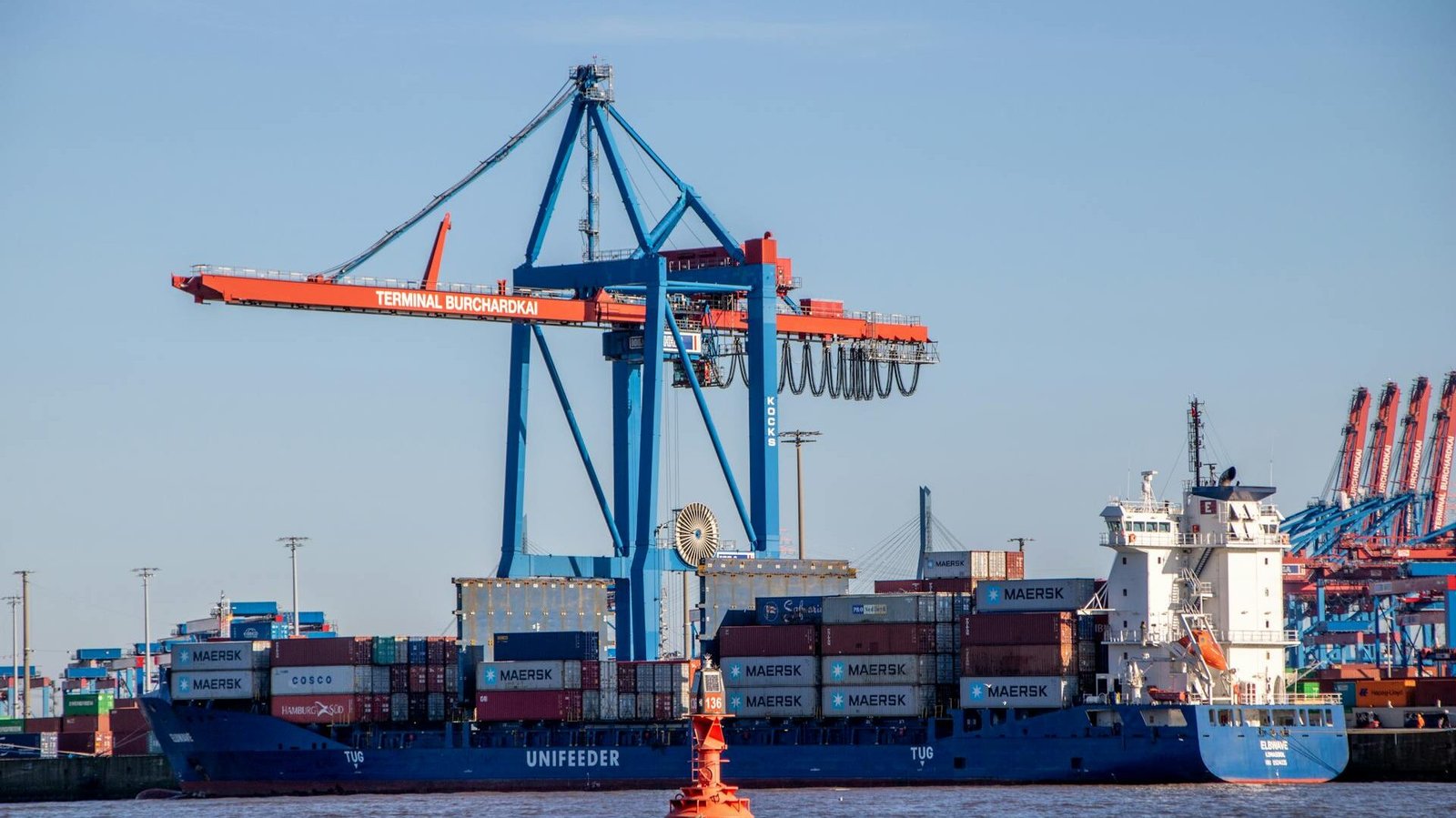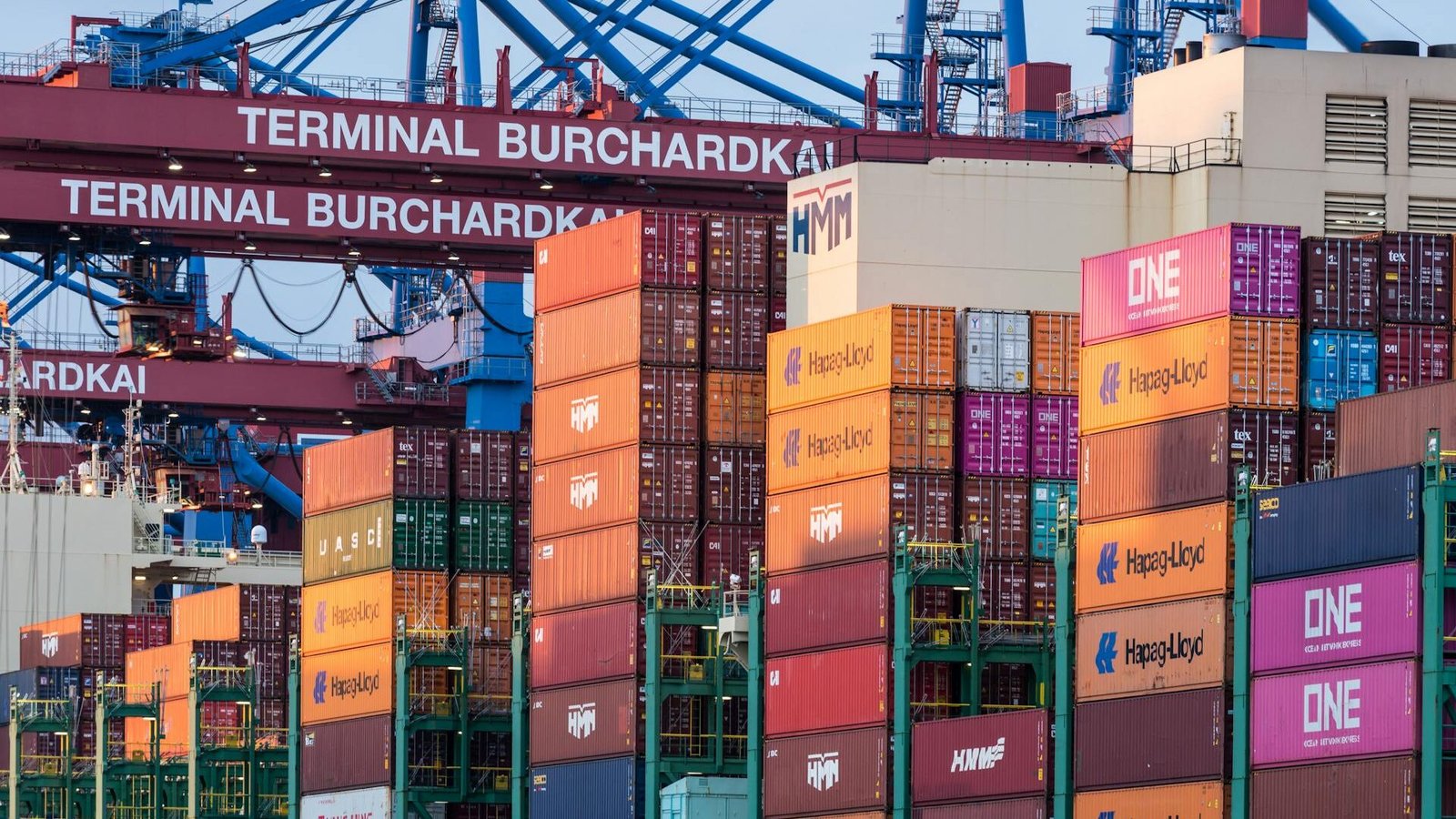
In the wave of globalization, the China’s lithium – battery export industry has witnessed unprecedented development opportunities. With strong manufacturing capabilities and technological innovation, China has become the main force in global lithium – battery production and export, and the export scale has been continuously expanding. However, recently in the international logistics market, it is not uncommon for China’s lithium – battery exports to be hindered due to certification issues. This has made many export enterprises realize that lithium – battery export certification has become a key factor in determining the success of their business. Next, let’s delve into why these certifications are a must – have for China’s lithium – battery exports.
1. Why are these certifications essential for exports?
1.1 Global mandatory transportation threshold
Due to their special chemical properties, China’s lithium – battery exports pose certain safety risks during transportation. To ensure global transportation safety, international organizations have formulated a series of strict transportation standards and regulations, such as the “Technical Instructions for the Safe Transport of Dangerous Goods by Air” of the International Civil Aviation Organization (ICAO) and the “International Maritime Dangerous Goods Code” of the International Maritime Organization (IMO). These certifications are necessary conditions for China’s lithium batteries to enter the global transportation market. Without them, airlines and shipping companies will refuse to carry the goods.
1.2 Avoid the risk of cargo seizure/return
Neglecting the certification work may lead to the seizure or return of China’s lithium – battery cargo by customs or transportation agencies during transit. Cargo seizure will put enterprises under pressure of capital turnover and additional costs, while return will result in the loss of previous transportation costs and affect the enterprise’s reputation and customer relationships. Therefore, enterprises must attach importance to certification to avoid such risks.
1.3 Three core components for safety and compliance
1.3.1 UN38.3
The UN38.3 certification is the “international passport” for the safety of China’s lithium batteries and is a prerequisite for air and sea transportation of lithium batteries. It is like a safety label for lithium batteries, proving their safety during transportation. This certification applies to all types of China’s lithium batteries, including those in the fields of power, energy storage, and consumer electronics.
1.3.2 MSDS
The Material Safety Data Sheet (MSDS) is a must – check document for logistics and customs inspections. It details the chemical composition, physical and chemical properties, hazard labels, and first – aid measures of China’s lithium batteries, providing emergency guidance for unexpected situations in logistics transportation and serving as an important basis for customs to judge the compliance of cargo transportation.
1.3.3 Transportation appraisal report
The transportation appraisal report is issued based on the results of the UN38.3 certification and is an important document proving that China’s lithium batteries comply with international transportation rules (such as the rules of the International Air Transport Association IATA). It further confirms the safety of lithium – battery transportation and is a guarantee for the smooth transportation of goods.
2. In – depth analysis of the core functions of the three certifications
2.1 UN38.3 certification
2.1.1 Eight major safety test items
The UN38.3 certification covers eight major safety test items such as vibration, shock, short – circuit, and over – charge, which are designed to simulate various situations that China’s lithium batteries may encounter during transportation. Through these strict tests, it can be ensured that lithium batteries will not catch fire or explode due to common situations during transportation.
2.1.2 Certification objective
The objective of the UN38.3 certification is clear: to ensure that China’s lithium batteries do not catch fire or explode during transportation, which is crucial for ensuring global transportation safety. According to statistics from the International Air Transport Association (IATA), in the past few years, although the number of aviation accidents caused by lithium – battery transportation safety issues is small, each incident has caused significant losses.
2.1.3 Scope of application
The UN38.3 certification applies to all types of China’s lithium batteries. With the development of technology, the application fields of lithium batteries are constantly expanding. Whether it is a large – scale enterprise’s power lithium battery or a small – scale enterprise’s consumer – electronics lithium battery, this certification is required.
2.2 MSDS report
2.2.1 Sixteen key contents
The MSDS report contains 16 key contents, covering all aspects of China’s lithium batteries from production to transportation and use. The chemical – composition section clarifies the chemical substances contained in the battery and their contents, while the first – aid measures and leakage – handling sections provide specific guidance for dealing with unexpected situations.
2.2.2 Common rejection pitfalls
In practice, there are some risks of rejection for the MSDS report. Incomplete component data or failure to update to the latest GHS (Globally Harmonized System of Classification and Labelling of Chemicals) standard may lead to cargo rejection, and enterprises need to re – prepare the report, increasing time and cost.
2.3 Transportation appraisal report
2.3.1 Effective logic
The transportation appraisal report is issued based on the results of the UN38.3 certification. Only by passing all the tests of the UN38.3 certification and proving the safety of China’s lithium – battery transportation can an enterprise obtain this report. The UN38.3 certification is the foundation of the transportation appraisal report, and the latter is a further application of the former’s results.
2.3.2 Core value
The core value of the transportation appraisal report lies in proving that China’s lithium batteries comply with international transportation rules and is an important certificate for cargo clearance and transportation. In international transportation, customs and transportation agencies judge the safety of cargo transportation based on this report. Lack of the report may lead to cargo detention or return.
2.3.3 Timeliness
The validity period of the transportation appraisal report is one year. When it expires, enterprises need to re – certify and apply for a new one. When renewing, the original UN38.3 report needs to be provided. Enterprises should manage and update the report well to ensure the continuity and compliance of China’s lithium – battery cargo transportation.

3. Step – by – step certification process flowchart
3.1 STEP 1: UN38.3 certification (takes 8 – 12 working days)
3.1.1 Required materials
To obtain the UN38.3 certification, samples of China’s lithium batteries, a specification sheet marked with voltage, capacity, and model, and high – definition pictures of internal and external packaging are required. These materials are important bases for the certification agency to evaluate whether the battery meets the requirements and ensure that the packaging complies with transportation safety standards.
3.1.2 Crucial details
During the certification process, the label must indicate watt – hours (Wh) and lithium content. Lack of this information will lead to certification failure. Watt – hours and lithium content are key indicators for judging the danger of China’s lithium batteries, and the certification agency uses this information to evaluate the battery’s safety.
3.2 STEP 2: MSDS report (third – party fast – track channel)
3.2.1 Material list
To apply for an MSDS report, a component list of China’s lithium – battery cells and one sample are required. The component list of cells is the basis for the chemical – composition section of the report, and the sample is used for actual testing to ensure the accuracy of the report information.
3.2.2 Urgent – service reminder
If an enterprise has an urgent need, it is advisable to choose an agency that supports multi – language versions. In international transportation, a multi – language MSDS report can ensure accurate understanding and use in different countries and regions, improving transportation efficiency and avoiding misunderstandings.
3.3 STEP 3: Transportation appraisal report
3.3.1 Key to clearance
To apply for a transportation appraisal report for China’s lithium – battery exports, an enterprise must provide a UN38.3 report, detailed packaging pictures, and a completed application form. The UN38.3 report serves as the fundamental proof of the safety of China’s lithium batteries during transportation. The packaging pictures give the certification agency a clear view of how the goods are packed, ensuring that the packaging adheres to safety requirements. The application form is the official procedure for requesting the report. Only when all these materials are provided in full can an enterprise smoothly apply for the transportation appraisal report. The certification agency will conduct a rigorous review of these materials to confirm that they meet the relevant international standards and regulations.
3.3.2 Special scenarios
In certain special situations, separate applications are needed for the sea – and air – transportation appraisal certificates for China’s lithium – battery exports. The transportation conditions for sea and air are quite different. During sea transportation, the cargo may be exposed to moisture, rough waves, and long – term vibrations, which can affect the integrity of the lithium batteries. On the other hand, air transportation has strict requirements regarding the weight, size, and safety of the cargo due to the high – altitude and rapid – movement environment.
If it is a full – container shipment of China’s lithium – battery exports, an additional container – loading plan is necessary. This plan should take into account factors such as the center of gravity distribution of the cargo within the container. An uneven center of gravity can cause the container to tip over during handling or transportation, leading to potential damage to the lithium batteries. The fixing method of the cargo is also crucial. Securely fixing the lithium – battery packages can prevent them from shifting during transit, reducing the risk of short – circuits or other safety hazards. Moreover, the spacing between the cargo should be carefully considered to allow for proper ventilation and to prevent over – heating.

4. Guide for enterprises to avoid pitfalls (time – and effort – saving version)
4.1 Packaging pitfalls
When it comes to packaging China’s lithium – battery exports, enterprises need to pay close attention to several critical details. If individual batteries are not equipped with anti – short – circuit measures, the entire shipment will likely be returned. Short – circuits are one of the major causes of safety accidents in lithium batteries. Common anti – short – circuit measures include using insulating materials to wrap the electrodes or installing built – in short – circuit protection devices.
In addition, if a single package contains more than 24 batteries, an extra hazard label must be affixed. This label is a warning sign for logistics and customs personnel, reminding them of the potential dangers associated with the cargo. The content and format of the hazard label must comply with international standards to ensure that it is clearly visible and easily understandable, even in different lighting and handling conditions.
4.2 Iron rule for choosing certification agencies
When selecting a certification agency for China’s lithium – battery exports, enterprises should prioritize laboratories with ISO 17025 qualifications. These laboratories are equipped with professional testing equipment and staffed by experienced technicians. They have the expertise to conduct accurate and reliable tests on lithium batteries, ensuring that the certification results are valid.
Enterprises can verify the qualifications of a laboratory by checking its official registration number on the relevant websites. At the same time, beware of low – price traps. Some unqualified agencies may offer extremely low – cost certification services, but they may cut corners during the testing process. For example, they might skip some essential test items, which could result in an invalid certificate. This would not only waste the enterprise’s time and money but also put the entire export business at risk. Therefore, when choosing a certification agency, enterprises should consider not only the price but also the agency’s reputation, technical capabilities, and service quality.
4.3 Truth about urgent – service
Under normal circumstances, obtaining the UN38.3 certification for China’s lithium – battery exports takes about two weeks. However, if an enterprise is in a hurry to ship its products, it can opt for the urgent – service option, which can reduce the certification time to seven days.
It’s important to note that no certification agency can bypass the required test items. These tests are designed to ensure the safety of lithium – battery transportation, and skipping any of them would compromise the reliability of the certification. When choosing the urgent – service, enterprises should only cooperate with legitimate and professional agencies. Some well – established certification agencies may increase their manpower and resources to expedite the testing process while maintaining the same high – quality standards.
5. Long – term management suggestions
5.1 Annual reminder
The transportation appraisal report for China’s lithium – battery exports needs to be renewed annually. Enterprises can set up an internal reminder system to ensure that they don’t miss the renewal deadline. This can be done through the company’s management software, where a reminder can be automatically sent when the report is approaching its expiration date.
Alternatively, enterprises can assign a dedicated staff member to be responsible for the report – renewal process. A performance – assessment mechanism can be established to ensure that the task is completed on time. Timely renewal of the transportation appraisal report is essential to avoid any disruptions in the export process, ensuring the smooth flow of China’s lithium – battery exports.
5.2 Label template library
Enterprises involved in China’s lithium – battery exports can establish a label system that complies with the 65th edition of IATA regulations. Design a standardized label template that includes essential information such as the battery model, technical specifications, hazard labels, and UN numbers.
During the production process, strictly follow the template when pasting labels on the batteries. This ensures the uniformity and accuracy of the labels, reducing the chances of certification failure or cargo rejection due to label – related issues. Regularly update the label template to keep up with the latest international standards and regulations. By maintaining a well – organized label template library, enterprises can improve their production efficiency and management level, minimizing losses caused by label errors.
5.3 Cost optimization
Bundle certification is an effective cost – saving strategy for China’s lithium – battery exports. By obtaining the UN38.3 certification, MSDS report, and transportation appraisal report together, enterprises can potentially reduce their certification costs by up to 30%.
When choosing a certification agency, enterprises should negotiate with the agency to get the best possible deal. At the same time, don’t compromise on the quality of service. A professional certification agency will not only ensure the accuracy of the certification but also provide useful advice and support throughout the process. Some agencies offer bundled – service packages that are tailored to the specific needs of lithium – battery export enterprises, allowing them to save money while still meeting all the necessary requirements.
6. Ultimate one – sentence guide
“UN38.3 lays the foundation → MSDS clarifies the components → Transportation appraisal ensures customs clearance!” This concise statement summarizes the key roles of the three major certifications for China’s lithium – battery exports. The UN38.3 certification is the cornerstone, guaranteeing the safety of the lithium batteries. The MSDS report provides detailed information about the battery’s components, which is crucial for transportation and usage. The transportation appraisal report is the key to passing through customs smoothly. All three certifications are indispensable, and only by obtaining all of them can China’s lithium – battery exports enter the global market without any obstacles.
In conclusion, the certification process for China’s lithium – battery exports is complex but of utmost importance. Enterprises must fully recognize the significance of these certifications and take proactive measures to ensure compliance. Only in this way can they successfully navigate the international market and achieve long – term business success.





